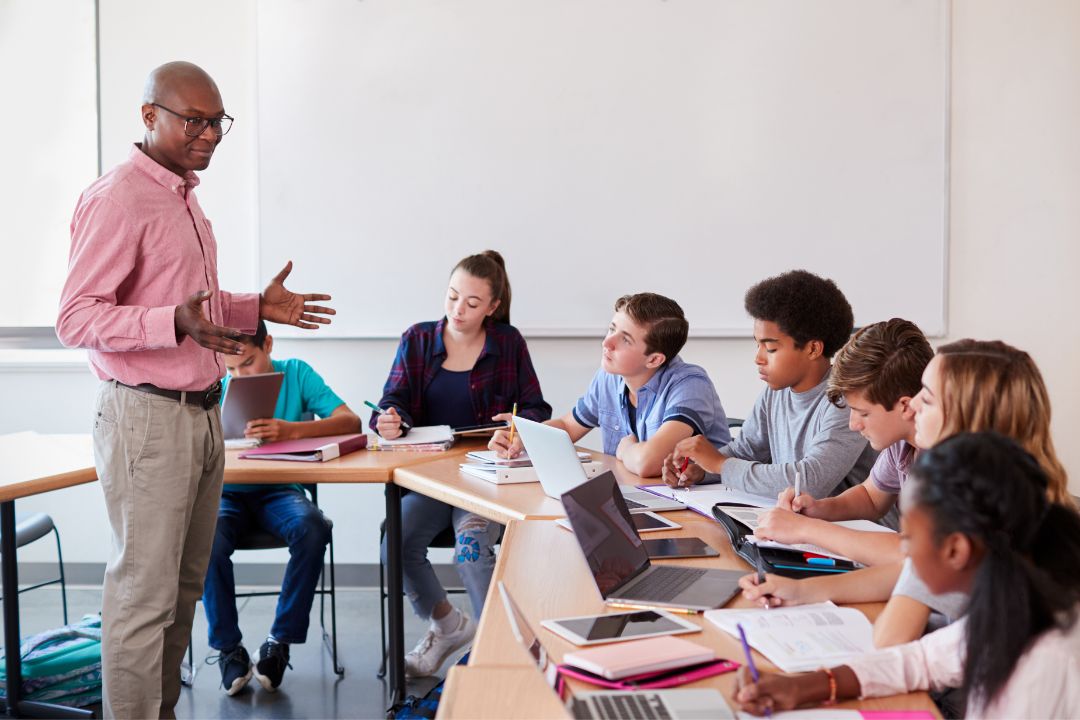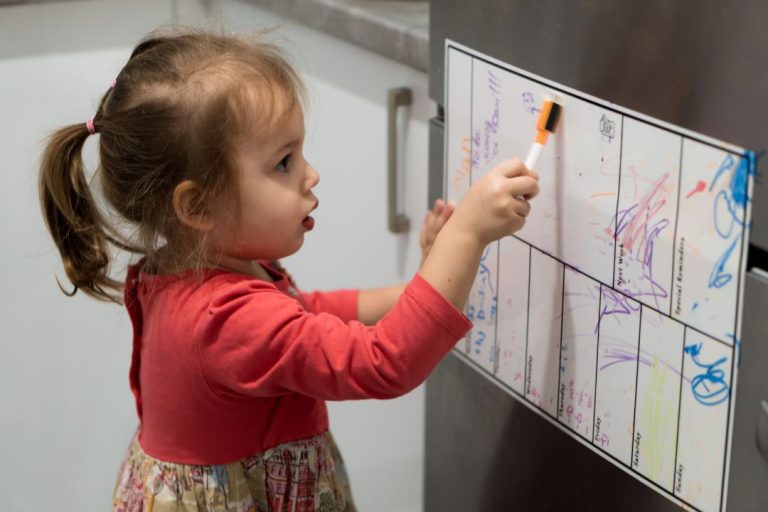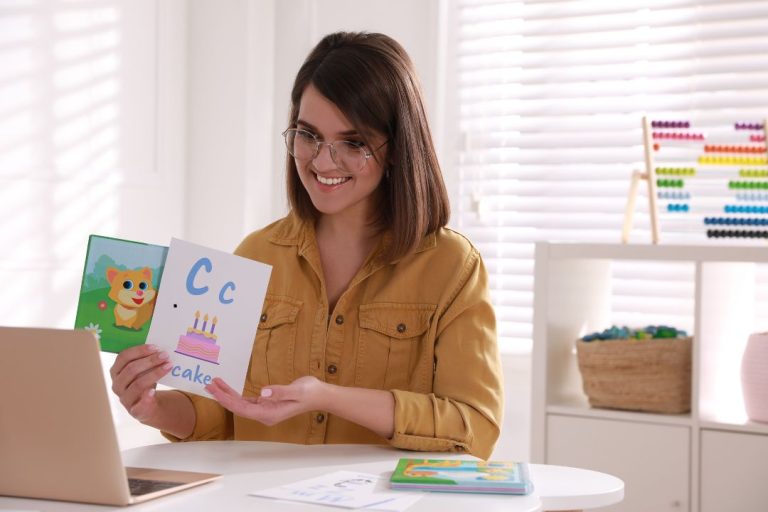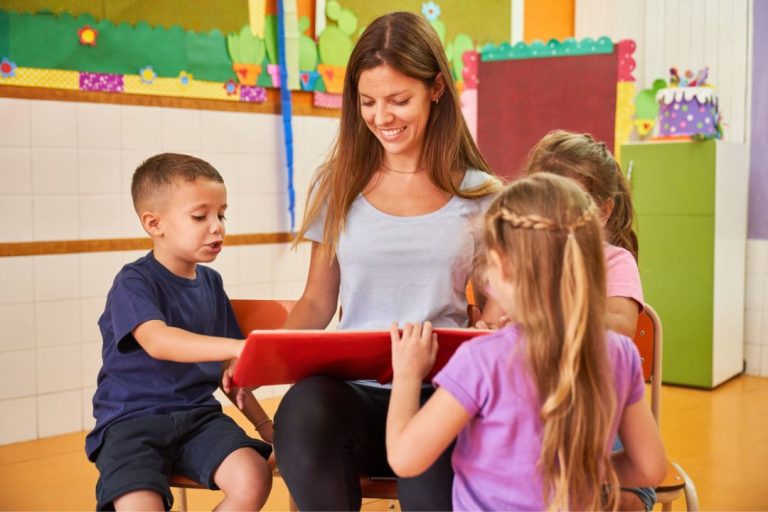How to Help Teenagers Focus in School: 7 Proven Strategies for Academic Success

To help a teenager focus in school, establish a consistent routine, and create a quiet study space at home. Encourage regular breaks and provide healthy snacks for sustained energy.
Building a supportive and encouraging environment is also essential for maintaining focus and reducing stress. Open communication and understanding their individual learning style can also play a significant role in helping teenagers focus in school. Additionally, incorporating mindfulness and stress-reducing activities into their daily routine can help improve focus and concentration.
Growing up in today’s world comes with a unique set of challenges, and teenagers often struggle with maintaining focus and attention in their academic pursuits. As a parent or educator, understanding how to help teenagers focus in school can greatly impact their overall academic success and well-being. By implementing practical strategies and creating a nurturing environment, teenagers can be empowered to improve their focus, ultimately setting them up for success in their educational journey.
Teenage Brain Development And Attention Span
Teenage brain development plays a key role in attention span and focus. To help teenagers concentrate in school, providing a conducive learning environment, minimizing distractions, and encouraging regular physical activity can all positively impact their ability to focus and retain information.
Understanding the unique aspects of adolescent brain development can help support teenagers in developing stronger attention spans.
Adolescent Brain Development
Teenagers often struggle with focusing in school due to the ongoing development of their brains. The adolescent brain is still maturing and going through significant changes, especially in the areas related to attention span and cognitive control. This can impact a teen’s ability to concentrate and stay focused during classes and while doing homework. Understanding the unique developmental stage of the teenage brain is crucial in finding effective strategies to help them improve their attention and academic performance.
Impact Of Attention Span On Academic Performance
The attention span of teenagers plays a pivotal role in their academic success. A strong correlation exists between the ability to maintain focus and overall academic performance. When teenagers are unable to sustain their attention, they may struggle to comprehend complex concepts, leading to lower grades and increased frustration. It’s essential to address the impact of attention span on academic achievement and implement strategies that support teens in enhancing their focus and concentration abilities.
Teenager’s Brain Development and Attention Span
Teenagers struggle with focusing in school due to ongoing brain development. The adolescent brain is maturing and going through significant changes, especially in areas related to attention span and cognitive control. This can impact a teen’s ability to concentrate and stay focused during classes and while doing homework. Understanding the unique developmental stage of the teenage brain is crucial in finding effective strategies to help them improve their attention and academic performance.
Impact of Attention Span on Academic Performance
The attention span of teenagers plays a pivotal role in their academic success. A strong correlation exists between the ability to maintain focus and overall academic performance. When teenagers are unable to sustain their attention, they may struggle to comprehend complex concepts, leading to lower grades and increased frustration. It’s essential to address the impact of attention span on academic achievement and implement strategies that support teens in enhancing their focus and concentration abilities.
Understanding Teenagers’ Attention Challenges
Distractions In The School Environment
Teenagers often struggle with focusing in school due to various distractions in their environment. These distractions can include noise from other students, external commotions, or even personal issues. Teachers and parents need to recognize these distractions and work towards minimizing them to create a more conducive learning environment for teenagers.
Influence Of Technology On Teenagers’ Focus
The pervasive influence of technology also plays a significant role in teenagers’ ability to focus in school. With smartphones, social media, and other gadgets constantly vying for their attention, it can be a considerable challenge for teenagers to stay focused and engaged in learning. Educators and parents should develop strategies to help teenagers manage their screen time and strike a balance between technology use and attention to academic tasks.
Creating A Supportive Learning Environment
To help teenagers focus in school, create a supportive learning environment that encourages active participation, provides clear instructions, and fosters positive relationships. Offer a mix of visual and auditory learning opportunities to cater to different learning styles and consider incorporating regular breaks to maintain engagement and attention.
Creating a Supportive Learning Environment
With the myriad distractions vying for a teenager’s attention, creating a supportive learning environment that encourages focus and engagement in the classroom becomes crucial. Minimizing distractions and utilizing engaging teaching methods are key to fostering a conducive setting for learning, and helping teenagers thrive academically and personally.
Minimizing Distractions In The Classroom
In a tech-savvy world, minimizing distractions in the classroom is essential for teenage students. Consider implementing the following strategies:
- Clear the learning space of unnecessary clutter to maintain an organized and structured environment.
- Encourage the use of learning aids and materials that facilitate focus, such as noise-canceling headphones for collaborative activities or individual study sessions.
- Enforce technology guidelines to regulate device use during lesson time, allowing for designated break periods to check for messages or notifications.
Utilizing Engaging Teaching Methods
Engaging teaching methods play a vital role in capturing and maintaining a teenager’s focus:
- Integrate interactive activities and group discussions to stimulate active participation and critical thinking.
- Incorporate visual aids, such as presentations and videos, to complement traditional lectures and enhance comprehension.
- Utilize real-life examples and hands-on experiences to make learning relatable and engrossing for students.
By purposefully crafting a supportive learning environment in the classroom, educators can empower teenagers to channel their energy into productive academic pursuits, fostering a culture of focus and growth.
Encouraging Healthy Lifestyle Habits
Helping teenagers focus in school starts with encouraging healthy lifestyle habits. Promoting good sleep, regular physical activity, and healthy eating can significantly impact a teenager’s ability to concentrate and stay focused during school hours.
Importance Of Sleep For Focus And Concentration
Adequate sleep is crucial for a teenager’s cognitive function and academic performance. Not getting enough sleep can impair attention, concentration, and overall cognitive abilities, making it difficult for teenagers to stay focused in school. Lack of sleep has been linked to lower academic achievement and increased risk of behavioral problems. Encouraging teenagers to establish a consistent sleep schedule and prioritize quality sleep can enhance their ability to concentrate and absorb information in the classroom.
Benefits Of Regular Physical Activity For Cognitive Function
Engaging in regular physical activity is not only beneficial for physical health but also plays a significant role in enhancing cognitive function. Exercise has been shown to improve memory, attention, and decision-making skills. Encouraging teenagers to participate in sports, engage in outdoor activities, or incorporate regular exercise into their routine can help boost their cognitive abilities, leading to better focus and concentration in school.
Implementing Effective Study Techniques
Teenagers often struggle to maintain focus in school due to various distractions. Implementing effective study techniques can significantly enhance their ability to concentrate and retain information. By combining time management and organization skills with active learning strategies, teenagers can develop a focused approach to their studies.
Time Management And Organization Skills
Effective time management is crucial for teenagers to prioritize tasks and allocate sufficient study time. Encouraging them to maintain a study schedule that includes specific time slots for different subjects can enhance their focus. Moreover, teaching organizational skills, such as keeping a tidy study space and using planners or digital organizers, can help teenagers stay on track and reduce distractions.
Active Learning Strategies For Improved Focus
Incorporating active learning strategies can engage teenagers in their studies, leading to improved focus. Utilizing mnemonic techniques and mind mapping can aid in information retention and comprehension. Additionally, interactive study methods, such as group discussions or teaching concepts to peers, can create an engaging learning environment, promoting sustained attention during study sessions.
Collaboration Between Parents, Teachers, And Teenagers
Effective collaboration between parents, teachers, and teenagers is pivotal for enhancing a student’s focus and academic performance. Establishing open communication channels and embracing a collaborative problem-solving approach can significantly contribute to a teenager’s success in school.
Importance Of Open Communication
Open communication among parents, teachers, and teenagers creates a supportive environment that fosters academic growth and mental well-being. Regular and transparent discussions help in identifying any challenges a teenager might be facing in focusing on their studies. It allows for adjustments in teaching strategies, support systems, and home environments to meet the individual needs of the teenager.
Collaborative Problem-solving Approach For Academic Success
Encouraging a collaborative problem-solving approach empowers parents, teachers, and teenagers to work together in identifying and addressing any obstacles to focus and academic success. This inclusive method acknowledges the perspectives and insights of all parties involved, paving the way for holistic and sustainable solutions that promote continuous learning and engagement.
Providing Structured Support Systems
Creating a structured support system is essential for helping teenagers maintain focus in school. By engaging parents in their academic journey and fostering a supportive network within the school community, we can ensure that teenagers have the resources they need to succeed.
Engaging Parents In Teenagers’ Academic Journey
Engaging parents in their teenagers’ academic journey is crucial for creating a structured support system. By encouraging open communication and involvement in their child’s education, parents can play an integral role in helping teenagers stay focused in school. Regular updates on their teenager’s progress, attending parent-teacher conferences, and being aware of their child’s strengths and weaknesses can empower parents to provide the necessary support at home.
Creating A Supportive Network Within The School Community
Fostering a supportive network within the school community involves collaboration among educators, counselors, and support staff. By establishing programs such as peer tutoring, study groups, and academic counseling, teenagers can access additional support within the school environment. Encouraging open dialogue between students, parents, and teachers creates an inclusive community where teenagers feel supported and valued.
Seeking Professional Guidance And Intervention
When it comes to helping teenagers focus in school, seeking professional guidance and intervention can be crucial in addressing underlying issues that may be impacting their ability to concentrate and perform well academically.
Recognizing Signs Of Underlying Issues
Parents and educators need to be vigilant in recognizing the signs of underlying issues that may be contributing to a teenager’s difficulty in focusing at school. Some common signs to look out for include frequent distractibility, poor time management, disorganization, impulsivity, difficulty following instructions, and a consistent struggle to complete tasks.
Importance Of Seeking Professional Help For Concentration Difficulties
Seeking professional help for concentration difficulties is essential in ensuring that teenagers receive the appropriate support and intervention they need. Professional guidance can help identify any underlying issues, such as attention-deficit/hyperactivity disorder (ADHD), learning disabilities, anxiety, or depression, and provide targeted strategies to help improve focus and academic performance.
Frequently Asked Questions On How To Help Teenager Focus In School
How Do You Help A Student With Lack Of Focus?
To help a student with a lack of focus, provide a quiet and organized study space, break tasks into smaller chunks, set clear goals, and encourage regular breaks. Additionally, use tools like timers or white noise to minimize distractions. Offer support and understanding to help them stay on track.
What To Do When Your Child Is Not Focused In School?
Encourage regular breaks and healthy snacks. Discuss any underlying issues with teachers and consider a professional assessment. Establish a consistent routine and explore different learning methods. Encourage physical activity and limit screen time. Stay patient, supportive, and involved in your child’s education.
How Do You Teach A Child Who Is Easily Distracted?
To teach an easily distracted child, create a structured environment. Break tasks into small steps and use visual aids. Limit distractions and offer frequent breaks. Provide positive reinforcement and use interactive, hands-on activities. Stay patient and consistent to help them stay focused.
How Can I Help My Teenager Improve Focus In School?
To help your teenager improve focus in school, ensure they get enough sleep, create a designated study area, limit distractions during study time, encourage regular breaks, and teach them time management skills. Additionally, consider discussing any underlying issues with a healthcare professional.
Conclusion
In helping teens focus at school, understanding their challenges and providing support is crucial. Parents and educators can empower teenagers to become successful learners by fostering a positive environment and offering practical strategies. With open communication and tailored guidance, we can help teens build essential skills and thrive academically.

Emma combines her teaching experience with her writing skills to produce engaging and informative content. She covers a range of topics, from classroom management to innovative teaching techniques.






